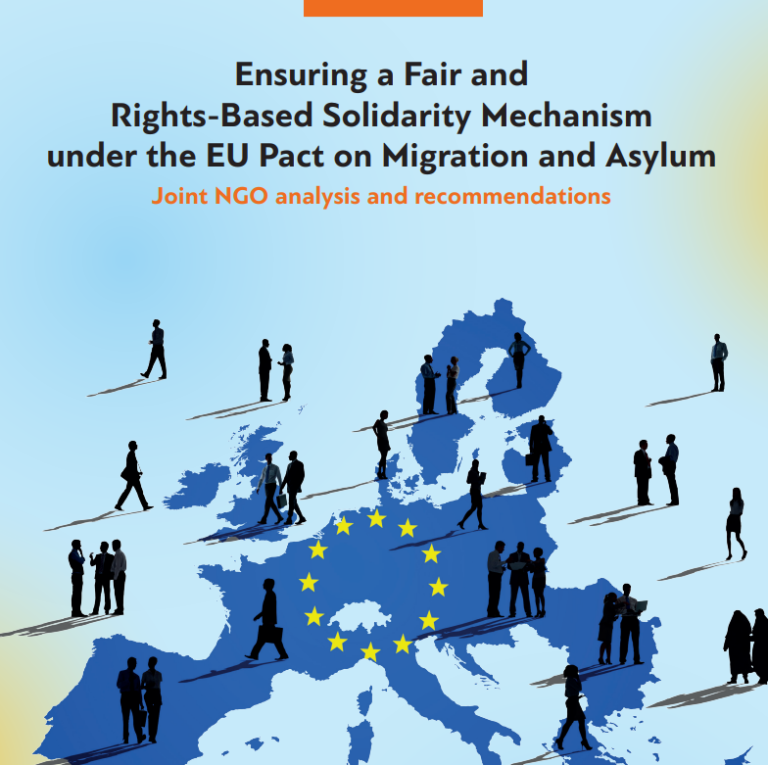This article first appeared in ILPA monthly November 2019. Nadia O’Mara is on the Executive Committee of Refugee Legal Support.
Shrinking legal protections for refugees and asylum seekers in Greece
A series of unimaginable tragedies in the latter half of 2019,all of them avoidable, has reignited public and mediainterest in the plight of refugees in Greece. The crisis is adirect result of the EU’s failure to adopt a fair and humanemigration policy which shares responsibility acrossmember states. Newly introduced changes to Greek asylumlaw will drastically weaken protections for asylum seekersand refugees. For those seeking to reunite with family in theUK, Brexit is poised to slam shut yet another door.
A new wave of tragedy
On 29 August this year, 13 boats carrying 547 peoplearrived within 35 minutes of each other on the Greek islandof Lesvos (1). The months that followed have seen asignificant increase in arrivals across the Eastern AegeanIslands, in greater numbers than at any time since the 2015peak (2).
The Greek authorities failed to transfer anywhere nearenough people off the islands to balance out the rate ofarrivals and by the time of writing in October, the populationof registered asylum seekers on Lesvos exceeds 16,000 (3).The camp’s formal capacity is under 4,000.
The humanitarian situation for those trapped on the island‘hotspots’ under the EU Turkey statement has deterioratedrapidly, with humanitarian aid organisations working inMoria declaring a state of emergency.
The desperate overcrowding has led to living conditions thatare inhumane and degrading. There are also dangerous andlife threatening consequences. In August, a 15-year-old boyfrom Afghanistan was fatally stabbed during an altercationin the desperately overcrowded ‘safe zone’ for minors (4) .The following month a blaze swept across the camp, killinga woman called Faride Tajik (5). When further tragedyseemed unimaginable, another fire ripped through Vathycamp on the island of Samos, displacing nearly all 6,000people living there (6).
While conditions in the mainland camps are on the wholebetter than in the hotspots, asylum seekers face excessivedelays in the processing of their claims and barriers toaccessing essential services like healthcare (7).Beneficiaries of international protection face destitution andevictions. Campaigners describe refugee status in Greece as‘on paper only’ (8).
More changes, but no solutions
In July, the New Democracy party secured a landslidevictory in the Greek elections. The new governmentimmediately announced its intention to ‘tackle’ migration tothe country.
The new government has since made good on its wordputting forward a controversial ‘international protection bill’introducing sweeping changes to the Greek asylum system.Despite deep concerns raised by UNHCR, a number of Greekauthorities and civil society organisations, the GreekParliament passed the bill at the end of October (9).
The new law, which the government has explicitly tied totightening rules and increasing returns, will drasticallyweaken protections for asylum seekers and refugees.Among other measures, the new law (10):
- Reduces the duration of residence permits for subsidiaryprotection to one year, as opposed to three.
- Introduces several provisions to expand detentionmeasures, including an extension on the maximum durationof detention to 18 months.
- Introduces a six-month time limit before access to thelabour market is granted to applicants, as opposed to thecurrent rules on immediate access to employment.
- Makes provision for the first instance asylum interview tobe conducted by authorities other than the Greek asylumservice – namely the police and armed forces – in cases oflarge numbers of new arrivals.
- Removes the automatic right to remain in the territoryduring appeals, which now has to be requested in aseparate procedure, and introduces a requirement thatapplicants state the full grounds for appealing a firstinstance decision for an appeal to be considered admissible.
For those who have worked with refugee communities inGreece, it seems unbelievable that things could get anyworse. But with these new changes to Greek asylum law,the EU’s inertia and the displacement of Syrian Kurdsfollowing the Turkish offensive in northeast Syria, the sadreality is that people seeking safety will continue to arrivewith little hope of adequate reception conditions or a fairasylum procedure.
Another door closes
For many asylum seekers trapped in Greece, the onlyprospect of having a safe, legal route out of the country isthrough family reunification under the Dublin III Regulations.As we have tragically seen in the UK recently, safe passageremains elusive to too many people and with unimaginableconsequences (11). Refugee Legal Support (RLS), a group ofspecialist immigration lawyers, provides free legalassistance to many asylum seekers in Greece who wish tojoin their relatives in the UK. For many of our clients, theDublin system is a precious lifeline and the only way toreunite with their loved ones.
With Brexit looming, the future of family reunification to theUK is unclear and uncertain. At the time of writing, theposition appears to be that in the event of a ‘no deal’ Brexit,the UK will immediately abdicate its responsibilities underthe Dublin system and leave Eurodac (12). Pending casesshould still be dealt with under the old framework. In therun up to the now extended exit date of 31 October, theGreek authorities had been expediting Dublin applications tothe UK to ensure as many applications as possible weresubmitted before the cut-off date.
More generally, once we leave the EU section 17 of the EU(Withdrawal) Act commits the UK government to ‘seek tonegotiate’ an agreement with the EU to provide for a Dublin-equivalent family reunification mechanism – but only forunaccompanied asylum seeking children to join relatives inthe UK (13). Until such an agreement is concluded allcategories of applicants – including unaccompaniedchildren – will no longer be able to rely on Dublin and will beleft with the far less generous domestic provisions. Forunaccompanied children who want their family members tojoin them in the UK, the only option will be entry clearanceapplications outside the Immigration Rules.
The House of Lords EU Home Affairs Sub-Committee hasrecommended the government negotiates an interimagreement with the EU to ensure people can still accessDublin family reunification routes post-Brexit. There are nosuggestions however that the Government has taken anysteps to do so. For all categories of people, but particularlychildren, it is critical that the UK keeps open safe and legalroutes to sanctuary.
RLS continues to promote the rights of refugees in Greeceby assisting them with their family reunification andsubstantive asylum claims. With Brexit threatening familyreunion for those seeking to join family in the UK, ourcountry-specific expertise and networks put us in aninvaluable position to assist.
We are in desperate need of both donations to run our legalclinic in Athens and people-power in the UK and in Athens –a need now heightened by changes to Greek asylumprocedure. We are currently particularly interested inreceiving volunteer applications from UK immigrationpractitioners who have either previously volunteered withRLS or who can give a longer period of time than theminimum requirement of 2-3 weeks.For longer termvolunteers there is greater flexibility in respect ofbackground and experience. If you want to know more abouthow to help, please get in touch.
Footnotes
1) P Kingsley, ‘Migration to Greece is Rising as ErdoganWarns of Still More’ The New York Times (11 September2019) https://www.nytimes.com/2019/09/11/world/europe/greece-migrants-erdogan-lesbos-syria.html?rref=collection%2Fbyline%2Fpatrick-kingsley&action=click&contentCollection=undefined®ion=stream&module=stream_unit&version=latest&contentPlacement=2&pgtype=collection
2) The NGO Aegean Boat Reports has recorded a 55%increase in arrivals compared to 2018 https://aegeanboatreport.com/reports
3) https://twitter.com/FranziEire/status/1186230215057592320
4) A Vogt, ‘Teenager killed and two injured in stabbing atnotorious Lesbos refugee camp’, The Telegraph (25 August2019) https://www.telegraph.co.uk/news/2019/08/25/teenager-killed-two-injured-stabbing-notoriouslesbos-refugee/.
5) D Howden and A Fotiadis, ‘Behind the razor wire ofGreece’s notorious refugee camp’ The Guardian (5 October2019) https://www.theguardian.com/world/2019/oct/05/the-truth-about-the-fire-in-greeces-notoriousrefugee-camp.
6) C Da Silva, ‘Major Fire Breaks Out at OvercrowdedRefugee Camp, Forcing Thousands to Flee’ Newsweek (15 October 2019) https://www.newsweek.com/fire-greek-refugee-camp-samos-thousands-evacuatevathy-1465233
7) Amnesty International Public Statement, ‘Greece MustImmediately Ensure that Asylum Seekers, Unaccompanied children and Children of Irregular Migrants Have FreeAccess to the Public Health System’ (14 October 2019) https://www.amnesty.org/download/Documents/EUR2512132019ENGLISH.PDF
8) RSA / PRO ASYL, ‘Protection for Recognised Refugees inGreece Remains in Paper’ (9 January 2019) https://rsaegean.org/en/returnedrecognized-refugees-face-a-dead-end-in-greece/;
and A King and I Manoussaki-Adamopoulou, ‘Greek Policeraid Athens squats and arrest migrants’ The Guardian (26August 2019) https://www.theguardian.com/world/2019/aug/26/greece-police-raid-athens-squats-exarcheiaarrest-migrants-agency-reports.
9) ECRE, ‘Greece: New Restrictions on Rights andProcedural Guarantees in International Protection Bill’ (31October 2019) https://www.ecre.org/greece-new-restrictions-on-rights-and-procedural-guarantees-ininternational-protection-bill/
and N Stamouli, ‘Greece toughens asylum rules as migrantarrivals rise’ Politico (31 October 2019) https://www.politico.eu/article/greece-toughen-asylum-rules-as-migrant-arrivalsrise/.
10) Greek Council for Refugees, ‘GCR’s comments on thedraft bill ‘On International Protection’ (23 October 2019) https://www.gcr.gr/media/k2/attachments/GCR_on_bill_about_International_Protection_en.pdf.
11) ‘Driver arrested after 39 bodies found in lorry containerin Essex’ The Guardian (23 October 2019) https://www.theguardian.com/uk-news/2019/oct/23/driver-arrested-after-39-bodies-found-in-lorrycontainer-in-essex.
12) Immigration, Nationality and Asylum (EU Exit)Regulations 2019 (SI 2019/745), paragraph 3 of schedule 1.
13) In the event that we leave the EU with a deal, the Dublin regulations will continue to apply for the duration of the transition period.




